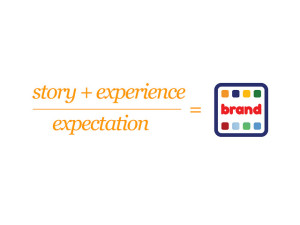Gaining exposure, clients, long-term customers, and new business is always on a small business owner’s mind. In fact, those key issues are elements that can make or break some small businesses financially. Another financial consideration for many small business owners lies in the space of paid ads. Paid ads are becoming more and more evolved with new social media platforms, increasing search engine platforms, all with various budgets and customer reach promises. Many business owners find themselves asking if paid ads will even work for them, should they consider the investment. In this post, we will review the top 5 questions each small business owner should consider asking when deciding to implement a paid adverting marketing campaign. Let’s get started!
What are you selling?
When first considering the idea of rolling out paid ads for your small business, you need to ask yourself “what are we selling?” Seems strange to ask yourself this question, but knowing what the product you are selling will help you identify if paying for ad space is worth it. For small businesses that sell products that rely on long term subscribers (i.e. educational programs or subscription based services) paid ads may be the way to go. For companies that sell large ticket items (like vehicles or high-end electronics) or a specific niche product (products that are hard to find locally) are also great businesses to implement paid ads. If your business model is outside these areas, focusing on other forms of marketing may be best.
Who are you selling to?
Paid advertising works for many small businesses across a variety of social media and electronic mediums. Not all ads, however, will do the same on each social media channel. Knowing who you are selling to (we are talking client demographics, interests, means for using social media platform) the better you can pick and choose what platform makes the most sense. Paid ad space is becoming increasingly popular across platforms like Facebook, Twitter, Instagram, LinkedIn, YouTube, and Pinterest to name a few. Here is a breakdown of the “target” audience for each platform:
- Facebook: If your business can generate great call to action with informative elements go with this method.
- Twitter: If you want to explode your customer reach and brand awareness, choose to promote a tweet.
- Instagram: If a picture can truly express 1,000 words, use this platform
- LinkedIn: If your business wants to reach professionals, this is the one place for the bulk of your ads.
- YouTube: Powerful videos to share? Share away here.
- Pinterest: If you’re trying to target woman’s interests, search no more. Start pinning.
As you can see, each platform has a small but very important difference. Knowing who you are trying to reach can help you determine if paid ads on these spaces are right for your business.
What is your budget?
Small businesses are no stranger to the word “budget.” Don’t run away just yet. “Budgets”, when it comes to paid advertising, can be your friend. Knowing not only what your company budget is, but also what budget paid advertising spaces operate within is just as valuable. When you choose a potential platform, look at what a budget “reach” gets you as a company. If you want to reach 10,000 new customers than setting a budget with that number in mind can help you determine if its worth the investment and on what platform you should pay for such exposure. If your budget is $ 5 and you are expecting to reach 1,000 people and retain them as customers, you may want to reconsider the approach.
What is your goal?
Let’s talk goals. Clearly outlining what your company’s goals are when deciding upon paid ad space is a smart way to outline and tailor your expectations, define budget, and choose a platform. What goals do you have in regards to marketing efforts? Is the goal to just gain SEO ranking? Is the goal to land 1-2 new big name clients/prospects? Is the goal to try and go viral and let the work of social media take over? Knowing the goal of any paid ad consideration will help identify if paid ads are the way to approach the goal or if looking for other advertising is a smarter investment.
What are your current results?
Sometimes paid ads are needed while other times they are not. If your company is gaining exposure by means of natural and organic methods (such as popular blog post content, word of mouth, or other methods without paid ad space), then you should consider staying with what works and saving a marketing or paid ad budget for other investments. If your business has poor results, traffic, or exposure than looking at paid ad space to improve results may be also worth the investment. Not all businesses need to implement paid ads at the current movement.
By now you’ve decided to either pursue the use of paid ads or you have decided now is not the time. Either way, choosing the right time to go with paid ads is just as important as what platform to use, how much to spend, and what message you would want to convey to your audience. Choosing a paid ad marketing or selling campaign is no easy solution, so being informed and choosing the best match for your business is vital to its success. Try some methods out, see what doesn’t work, and stick with what does. Happy marketing!
Business & Finance Articles on Business 2 Community(36)
Report Post





